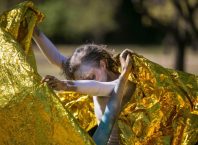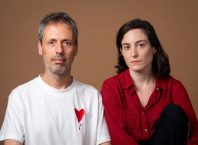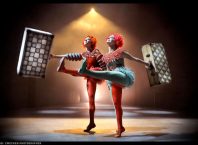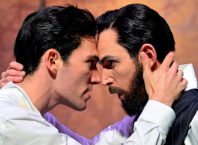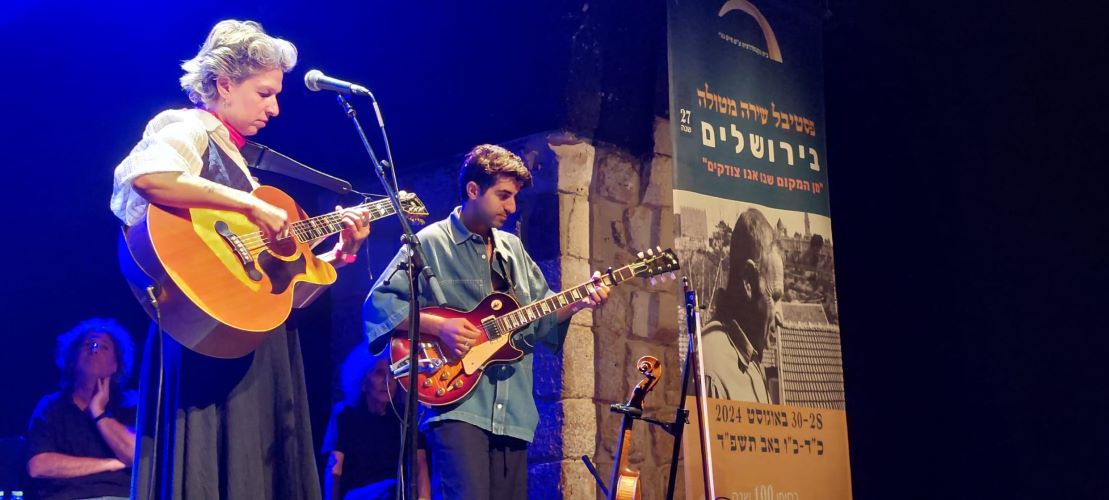
Art expresses the best part of humanity. Through art we learn to understand one another, through art we heal, through art we find hope. Poetry, with its ability to touch our hearts and minds, has the power to heal the spirit. The Metula Poets Festival has been held continuously for 28 years. Last year, it was temporarily moved to Jerusalem due to the damage caused to Metula during the war. It will remain in its temporary location this year until the rehabilitation process of the beloved northern town is complete. The Metula Poets Festival will be held in Jerusalem, from September 3 – 5, 2025 at the Confederation House and Mishkenot Sha’ananim. Entrance to festival events (with the exception of the opening performance) is free of charge, on a space-available basis. The full festival program is available below in the press release. Additional information may be found on the Confederation House website.
Metula Poetry Festival
Amidst the sorrow of the ongoing war, the victims, and internal divisions, the Metula Poetry Festival emerges as a beacon of hope for a better future.*
“The present burst into the Metula Poetry Festival, and we opened the door for it,” say Shiri Lev-Ari and Benny Ziffer, the artistic directors of the veteran poetry festival. “Throughout the years of this established festival’s existence, it has always maintained a balance between the old and the new, between tributes to past poets and the exposure of new poets, with an emphasis on the familiar and the accepted,” they add. “This year we felt that the current wave of writing, which deals with the present situation, wanted to take center stage, and that’s what we did.”
“I see a special achievement in our success in holding Israel’s most important poetry festival again this year, during one of the most difficult periods the country has known,” says Effie Benaya, CEO of Confederation House and its artistic director. “The decision to hold the festival in Jerusalem proved itself last year as a fitting response to the Israeli public’s immense thirst to demonstrate solidarity and mutual responsibility, and especially not to give up on the wonderful moments of joy that poetry can offer. Therefore, we decided to hold the festival in Jerusalem again this year, while we wait and hope that the beloved town of Metula will be restored and return to host the festival, as it has done throughout its history.”
Alongside moving tributes to mark the 30th anniversary of David Avidan’s death and the 150th anniversary of Shaul Tchernichovsky’s birth, the majority of the festival will be dedicated to the very heart of contemporary poetry, featuring a heart-wrenching poem written by poet Rita Kogan for released hostage Liri Elbag, and with Shlomo Efrati, a religious reservist who had never published anything until now, writing in one fell swoop about his experience of being forced to identify the bodies of the October 7th victims and bring them for burial.
It’s hard to describe the wealth of excellent poetry being written now, precisely during this time of distress and despair, poetry that attempts to explain, alleviate, prove, and shout in every possible vocal tone. We will host poets who have written about grief and loss, resistance and defiance, healing physical and emotional wounds and attempts at recovery, neighborly and close relationships, and poetry as a way out into life. This will be a festival where bereaved parents will also be given a voice, including poet Giora Fischer from Be’er Tuvia, whose son was killed in an IDF operation in Jenin, and Eyal Kaminka, whose son was killed on October 7th in Zikim.
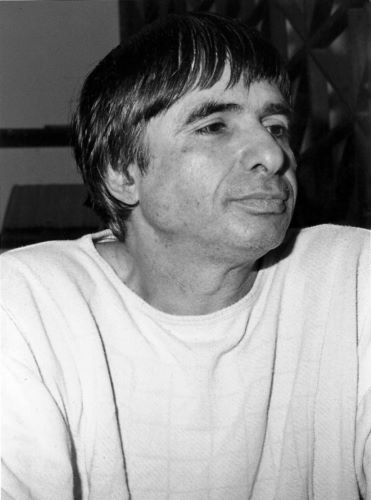
“In the spirit of David Avidan, who knew how to imagine the future,” Lev-Ari and Ziffer continue, “and wrote the unforgettable lines: ‘The simple, cutting fact that we have nowhere to go’ – we will place the spirit of contemporary Israeli poetry at the center.”
In keeping with the festival’s tradition of embracing everything that has happened and is happening in the field of Israeli poetry, this year’s event will also host poets, writers, editors, and translators from different generations and backgrounds.
We will celebrate the 80th birthday of the always-inspiring author Haim Be’er, and the 70th birthday of the Renaissance man, literary scholar, and book lover Ariel Hirschfeld. We will hold a special tribute to mark the 50th anniversary of the publication of the beloved poet Ronny Somek’s first book. We will hold a memorial service for A.B. Yehoshua, the great writer whose death three years ago has only intensified the longing for his caring and Zionist fervor. The festival will be closed with Shaul Tchernichovsky, in a celebration marking the 150th anniversary of the birth of the poet of humanism, secularism, and national sentiment.
This year, two great musicians who have published memoirs will be special guests at the festival: Chava Alberstein, will discuss her book “Canaan Alley,” and Ehud Banai will discuss his book “The Book of Green Onions.” Yaron London will be a guest with his new autobiographical poem, “In the Dog’s Yard.”
This year, the festival will be accompanied by the wonderful musicians Israel Bright, Yossi Fine, Hadara Levin Areddy, Wisam Gibran, Yair Dalal, and Eliyahu Dagmi.
The Festival Program:
The simple, hard fact, that we really have nowhere to go
David Avidan – 30 Years Since His Death
Metula Poetry Festival in Jerusalem
Jerusalem 2005 | 2025
Wednesday, September 3, 2025
15:00–16:00, Confederation House
How to breathe when the voice is in the throat | The song of life as it is
Moshe Ezuz, a poet, writer, educator, and former Shin Bet agent, belongs to the generation of creators who depict daily life from the perspective of those who have shaken off the illusions of false glamour. Ezuz and Guy Heller, interdisciplinary creators who explore manifestations of fear and awe in life and art, will read from their poems and discuss them with poet Meital Fishel, a member of Kibbutz Sarid, who writes about maternal anxieties, passionate love, and coping with the death of a father.
Host: Shiri Lev-Ari
Music: Wisam Gibran
16:30–17:30, Confederation House
On the Lyricism of the Soul | Poetry as Healing, Therapy, and Hope
The professional field of expertise of the poet Dana Amir is the philosophy of psychoanalysis, and within this framework, she deals with the connection between trauma and language, also giving deep expression to this in her poems. Amir will speak with Merav Roth, one of the founders and managers of the FLM organization, a volunteer network that provides long-term psychological assistance to victims of the October 7 massacre and their families, free of charge. Roth has published fascinating books on the connection between literature and psychoanalysis and has written poems, some of which have been set to music by Shlomo Gronich.
Noa Shakargi will join their conversation about the healing power of literature. Her book of poems, Na, touches on the pains of growing up and the space between Jewish religion and the religion of poetry.
Moderator: Shiri Lev-Ari Music: Eliyahu Dagmi
16:30–17:30, Confederation House Theater
The village is small, its houses are in rows | Longing for Metula and David Shimoni
In August 1949, the poet and writer David Shimoni traveled to visit the Metula colony at the edge of the Upper Galilee and published his impressions in the newspaper Davar: “The village is small, its houses are in rows, but its surroundings are a feast for the eyes,” he began the poem. The beautiful northern colony, which has hosted the poetry festival for some 25 years, has experienced turmoil and severe damage in the past two years due to the war. Now it looks toward the future.
The poetry festival is looking forward to returning to Metula, and in the meantime is presenting a memorial tribute to David Shimoni, the author of the most beautiful idyll ever written about it. Hebrew literature scholars Nitza Ben-Dov and Oded Menda-Levy will discuss the unjustly forgotten poet and read excerpts from the poem.
Moderator: Benny Ziffer
Music: Wisam Gibran
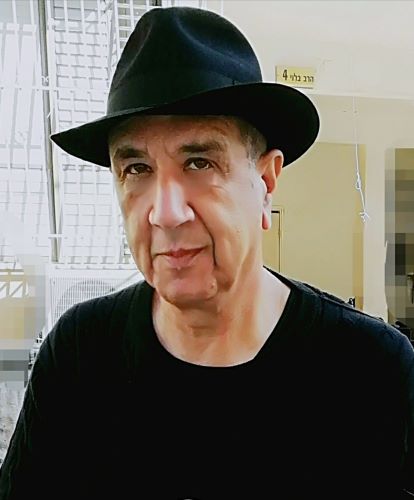
16:30–17:30, Mishkenot Sha’ananim Auditorium
The Fire Remains Red | Ronny Somek Celebrates 50 Years of Creation
A few years ago, the audience at the Poets Festival in Metula chose Ronny Somek as Israel’s new national poet. In his speech upon receiving the Order of Honor, he chose to be called “the most beloved poet.” This year marks the 50th anniversary of the publication of his first book by Masada, and this is an opportunity to celebrate his poetry with those who accompanied him on his journey and were a source of inspiration, as well as with those who followed in his footsteps: Poet Erez Biton will read from Somek’s poems and discuss him with poets Amos Noy, Rita Kogan, and Gilad Meiri.
Presenter: Rafi Weichert
Music: Yair Dalal
18:00–19:00, Confederation House
There’s no point in writing less than truth, | An hour in the company of Shlomit Appel
The poet Shlomit Appel was born in a displaced persons camp in Cyprus in 1948, and carries the pain of immigration and displacement alongside a sense of deprivation that her education forbade her from expressing. Her work blends restraint and outcry in a way that is unparalleled. She also has years of artistic experience within the Ninveh Gallery in the field of theater and as the person responsible for integrating art into construction on behalf of the Ministry of Housing. This is an opportunity to rediscover Appel’s work, as she will read from her poems and speak with the poet and researcher of her poetry, Noa Shakargy, and with literary scholar Ariel Hirschfeld.
Presenter: Benjamin Shvili
Music: Hadara Levin Areddy
18:00–19:00, Confederation House Theater
To pray from within the whirlwind | The “We Were Strange” Trio
The poet Ariel Zinder is a researcher and lecturer in the field of medieval poetry. The poet Amos Noy is a researcher of culture and folklore, a computer scientist, and a mathematician. Roni Eldad is a poet who recently made her breakthrough and has wonderfully expressed the authentic voice of a mother and woman in the reality after October 7th. The three of them joined forces and published a joint book, We Were Strange: Poems from a Year of War, which contains poems written during times of great upheaval and pain. Zinder, Noy, and Eldad will read from their new poems and discuss their different (and strange) paths to and within their creative work.
Moderator: Oded Menda-Levy
Music: Wisam Gibran
18:00–19:00, Mishkenot Sha’ananim Auditorium
Once, when it was possible to have sex | Meeting with author Michal Zamir
Every time a book by Michal Zamir, daughter of former Mossad chief Zvi Zamir, is published, it’s like a bomb has dropped, shattering another Israeli myth. Zamir is also one of the rare female authors who write freely about sex and erotica. The book she published this year, A Weakness for Generals, is a peak in terms of both these aspects, first and foremost because it is not a work of fiction, but rather the story of her own life.
Host: Shiri Lev-Ari
Music: Yossi Fine
19:30–20:30, Confederation House
In the orchard of Persian poetry and Sufi mysticism
Persian poetry has been woven into the lives of the Iranian nation for centuries. To this day, everyday conversation in Persian is often accompanied by a quote from a classical poem. Poetry is the direct path to the world of Iranian citizens, the one that is not revealed in the news broadcasts. Alongside it, throughout history, Sufi Islamic mysticism has also produced masterpieces in poetry, and it resonates with Jewish mysticism in more ways than one. The poet Avishalom von Shiloach, the Iranian-born poet Payam Feili, the translator of the mystical love poem “Majnun and Layla” Avi Elqayam, and the poet and writer Benjamin Shvili will discuss their favorite poetry and read from it.
Presenter: Benjamin Shvili
Music: Eliyahu Dagmi
19:30–20:30, Confederation House Theater
And if you look at what’s left between the lines | Jewish-German poets after the Holocaust
The poet, translator, and publisher Rafi Weichert and the translator Dina von Schwarze initiated, in a way that is not self-evident, a memorial project for German-Jewish poets who continued to write in German after the Holocaust. After the publication of the works of Paul Celan, Nelly Sachs, Rose Ausländer, and Hilde Domin, it was the turn of the most captivating of them all – the poet Mascha Kaléko, who lived in Israel in complete anonymity while being considered an admired poet in Germany, and even wrote her masterpiece here.
von Schwarze will read Kaléko’s poems in Hebrew and German, while Weichert, who made a name for himself with his translations of the Polish poet Wisława Szymborska’s work, will read new translations from his own pen, as well as some of his own poems.
Moderator: Benny Ziffer
Music: Wisam Gibran
19:30–20:30, Mishkenot Sha’ananim Auditorium
From yellow pears to green onions
Ehud Banai, a gifted musician and highly inspiring writer, has earned a place of honor in the bloodstream of Israeli culture. His long career seems like a journey on a winding road, into which he incorporated the Israeli experience in all its shades, with its lights and shadows. Banai will speak with the poet and editor of his new book, Yaara Shehori, about internal and geographical journeys in Israel and around the world, and about his literary loves. Banai’s book, The Book of Green Onions, is composed of inspiring diary entries, memories, and short stories. The musician Zohar Banai, his daughter, will accompany the event with her songs.
Moderator: Yaara Shehori
Music: Zohar Banai
21:00–22:30, Mishkenot Sha’ananim Auditorium
Opening Event
The simple, hard fact, that we really have nowhere to go
A tribute to David Avidan, 30 years after his death
David Avidan, who died 30 years ago, was a groundbreaking poet in many ways. He began publishing poetry in the 1950s and is considered one of the three prominent representatives of the “Statehood Generation” of poetry, alongside Nathan Zach and Yehuda Amichai. He published his first collection of poems, Faucets with Lips Cut Off, while he was a student. Some saw it as a new and daring book, while others were critical. However, Avidan was not only a poet but also an inventor: he wrote screenplays and plays, engaged in visual and sound art, and was essentially a futurist who loved to play with technological innovations. The festival’s opening will be dedicated to his avant-garde, groundbreaking, and prophetic work. Israel Prize winners Nitza Ben-Dov, Nili Cohen, and Erez Biton will participate, along with literary scholar Ariel Hirschfeld and poets Gilad Meiri, Agi Mishol, Ronny Somek, Hedva Harkavy, and Oded Carmeli. The evening will include composed songs by Avidan and readings from his poems.
Moderators: Shiri Lev-Ari, Benny Ziffer
Music: Eran Tzur
Thursday, September 4, 2025
10:30–11:30, Confederation House Building
Start with infinity, start from the heavens | A tribute to the poet Diti Ronen
Diti Ronen is a rare poet who, in each of her books, establishes a distinct and complete poetic process, both at the level of the individual poem and at the level of the entire book. Her poems, in intoxicating color, unfold her experiences as a woman of body and soul. As someone born and raised in Israel, and as the daughter of a Holocaust survivor, she is capable of writing a heartbreaking poem about a stew recipe. Literary scholar Ariel Hirschfeld and poet Noa Shakargy will discuss and read from her poems.
Moderator: Noa Shakargy
Music: Hadara Levin Areddy
10:30–11:30, Confederation House Theater
There are hidden loves | Secrets from the archives
The private lives of poets were hidden for many years in the darkness of archives, whose boxes of accumulated letters are filled with fascinating tales of love, disappointments, family tragedies, and stories of loneliness. On the occasion of the 75th anniversary of the Gnazim Institute’s Literary Archive, Adiva Geffen, the institute’s director, who is responsible for uncovering numerous hidden love affairs, will speak with Ruth Bachi Kolodny, a researcher of the Land of Israel and institutional and private archives, about the “explosive material” hidden in archives. The two will read selected excerpts from the letters.
Moderator: Benny Ziffer
Music: Eliyahu Dagmi
10:30–11:30, Mishkenot Sha’ananim Auditorium
Poetry must stand and speak | Poetry is exposed following October 7th and the war
Shlomo Efrati, who had never written anything before October 7th, stunned the Israeli poetry-reading public with his poem “Iron Swords War Diary,” in which he described his work in clearing and identifying bodies from the massacre. The poem has been translated into several languages and has received widespread acclaim worldwide. With him will appear the poet and doctor Kineret Magen, whose book Mom, a Helicopter is Coming describes her experiences as part of the medical teams on October 7th. The poet Yoram Nissinovich, who dedicated his poem “To Break from the Known Lines” to his nephew who fell in the war, will read his poems and talk about them.
Host: Shiri Lev-Ari
Music: Israel Bright
12:00–13:00, Confederation House
The last thing you need is to rely on someone who called you
Udi Sharabani, a former soccer player, began writing after retiring from sports, and some of his works are included in the school curriculum. He is also known for coining the term “politically correct era.” Alon Arad, an educator and literature teacher, wrote The Teacher, a biting satirical novel about the education system, and Home Advantage, a collection of poems that received much praise. Elad Zeret, editor of the Yedioth Ahronoth literary supplement, stunned readers with his book The Shipment – a shocking indictment dealing with animal abuse. The poet Altayeb Ghanaim, who, as he puts it, was born in the “Palestinian shtetl” in Baka al-Gharbiyya, defines himself as a “straight Arab, not looking for men or dates.” The four will read from their work and discuss characteristics of male writing and the ability of poetry to bring about change.
Host: Shiri Lev-Ari
Music: Yossi Fine
12:00–13:00, Confederation House Theater
A small and exciting publication | Three discerning publishers who are also creators
The poet, author, and literary scholar Oded Menda-Levy has established a publishing house named after the Tel Aviv street where he grew up, called Tarsat, which specializes in small, colorful booklets in the format of a small, stapled notebook. Menda-Levy is also an author in his own right, having written the books I Remember and I am a Writer. Gilad Meiri is a poet, editor, literary scholar, and publisher of the publishing house Makom Leshira, which recently published a comprehensive selection of his poems, Around the House, There Are No More Wild Animals – Selected and New. The Nine Lives Press, located at Gordon and Ben Yehuda streets in Tel Aviv, has long become a recognized institution, headed by Uriel Kun, a publisher, architect, winemaker, and travel writer who combines a life of adventure and restlessness with fine publishing. The three will read from their work and discuss the difficulty of surviving in the commercial world and the red lines they will not cross.
Presenter: Benny Ziffer
Music: Hadara Levin Areddy
12:00–13:00, Mishkenot Sha’ananim Auditorium
“If I’m tempted to write a play again, call the police” | Three years since A.B. Yehoshua’s death
The author A.B. Yehoshua was spared much mental anguish with his death three years ago, before the events of October 7th. Unlike some of the writers of the “Statehood Generation,” whose work became outdated after their deaths, Boolie’s books, as his friends called him, are more relevant than ever. The man, who was addicted to politics and a model of social concern, combined national vision and human plots in his novels, and was willing to fail as a playwright as long as he spread the messages he wanted to convey.
Several people who knew him closely will discuss Yehoshua, the man and the writer, including Israel Prize laureate Nili Cohen, researcher of his work and close friend Nitza Ben-Dov, author of his only biography to date Avi Gil, and poet Ronny Somek.
Presenter: Avi Gil
Music: Yair Dalal
13:30–14:30, Confederation House
So much love we bury in the ground | Poets on loss
The poet Giora Fisher is an educator and nature enthusiast, a Bible teacher, and a dairy farmer. After losing his son in 2002 during an IDF operation in Jenin, he returned to his old love, writing poetry. Eyal Kaminka, an expert in results-oriented thinking, an author, and a poet, lost his son in a battle at the Zikim camp on October 7th. Following this, he published the book Conversation, Half a Conversation this year, which contains poems, conversation excerpts, and thoughts. The poet Meital Nissim is soon publishing a new book containing elegies for her father, who passed away prematurely. The three will discuss the experience of loss and grief and writing as a means of healing.
Presenter: Ilan Berkovitz
Music: Israel Bright
13:30–14:30, Confederation House Theater
Allah Does Not Have Mercy on Kindergarten Children | An Inside Look at Arabic Poetry and Society
Sabrin Khujirat, Director of Governance and Planning at the Ta’aluf Institute, researches gender in Arab and Bedouin society. The poet Altayeb Ghanaim surprised about five years ago with his virtuoso book A Rough Spread Heart. From where did Khujirat and Ghanaim inherit their poetry? The two will talk about their sources of inspiration – from Mahmoud Darwish to Adonis and contemporary Arabic poetry. They will be joined by the poet Ronny Somek, a close friend of persecuted Arab poets who have fled to the West.
Presenter: Amos Noy
Music: Wisam Gibran
13:30–14:30, Mishkenot Sha’ananim Auditorium
The Gardener of the Garabedian House | A Tribute to Ariel Hirschfeld
It’s difficult to place Ariel Hirschfeld in a single literary or artistic field: he is a literary and art critic, a poet and writer in his own right, the author of groundbreaking essays, a flower painter, a musician, and a scholar. Some of the poets he has promoted and written about will pay tribute to him with gestures of love: Erez Biton, Agi Mishol, Nili Cohen, Bilha Ben-Eliahu, Elad Zeret, and Hedva Harkavy.
Presenter: Benny Ziffer
Music: Yair Dalal
15:00–16:00, Confederation House
When did man in the world begin to look at himself? Meron H. Izakson with fellow believers
This year, a thick volume was published of Meron H. Izakson’s poetry from 2011–2024, during which time he accompanied his wife thru her illness until her death. Does religious poetry have the power to heal? Does it specifically raise doubts? Isaacson will discuss this with a researcher of his poetry, Israel Prize winner Nitza Ben-Dov. Alongside them, the poet Avishalom von Shiloach, who grew up in a Haredi family and was groomed for the rabbinate until he decided to change direction, will appear and read his poems; the poet Yoram Nissinovich, one of the founders of the religious journal Mashiv Haruach; and the poet Sivan Har-Shefi, who published a powerful and introspective poetic-visual war diary this year.
Presenter: Benjamin Shvili
Music: Yossi Fine
15:00–16:00, Confederation House Theater
The smell of chicken soup from a stranger’s house calls me to sit down | Neighbors in Nano/Poetics
The poet and lawyer Ruth Asher recently edited an issue of the Journal of Nano/Poetics dedicated to neighbors – those who live with us in the same building and those who live across the line. But neighbors can also be trees and animals. The poetess Sabina Messeg founded the “Klil” series, dedicated to Israeli ecopoetry. The two, along with Galilean poet Tsuriel Assaf, will discuss writing from a place of proximity to people and landscape.
Moderator: Gilad Meiri
Music: Hadara Levin Areddy
15:00–16:00, Mishkenot Sha’ananim Auditorium
The Survival Guide of the People of Israel | What Will Become of Us?
Kabbalah scholar Yehuda Liebes, winner of the Israel Prize for Research in Jewish Thought, previously demonstrated his affinity for poetry in the collection Mnemosyne, where he gathered his translations of ancient poetry, full of inspiration and knowledge. He will talk about the Jewish-Christian dialog that took place beneath the surface, as he researched it in his translation of Egidio da Viterbo’s “Shechinah,” and about his quest to discover the secret of Jewish continuity. He will attempt to answer the eternal question, which is more relevant now than ever: what will become of us?
Moderator: Benny Ziffer
Music: Eliyahu Dagmi
16:30–17:30, Confederation House
Celebration of Romanian Culture
The poet and literary critic Ilan Berkovitz published his book The Last Ashkenazi Poet several years ago, which seeks to create a memorial for the Jewish community of Romania. Romanian Jews have made a decisive contribution to world literature – from the Romanian-born Jewish German poet Paul Celan to Romanian-born creators living in Israel.
Berkovitz will speak with the poet Tsuriel Assaf, who recently translated from the work of Beniamin Fundoianu, the Romanian Jewish poet who perished in the Holocaust; with the translator Dina Azriel, who this year published an exemplary translation of the Romanian Jewish creator Max Blecher; and with the poet Riri Sylvia Manor, who recently divides her time between Romania and Israel, and whose poetry has gained publication and recognition in both countries.
Presenter: Ilan Berkovitz
Music: Israel Bright
16:30–17:30, Confederation House Theater
A Very Happy Girl | Meeting the Poet Hedva Harkavy
The new book by poet Hedva Harkavy, Hilit Hilit, is read as a challenge to death and already hints in its title at a shared fate with her friend Hilit Yeshurun. Harkavy redefines Israeli sorrow, whose roots are in Leah Goldberg, the first to edit and publish her poems, whose continuation is at the edges of Alterman’s sadness, and whose present is contemporary bereavement. The ensembles will read aloud the enchanting text and converse with Ariel Hirschfeld.
Moderator: Dana Amir
Music: Yair Dalal
16:30–17:30, Mishkenot Sha’ananim Auditorium
The Famous Rifle Hangs on the Wall | Yaron London and the Poem “In the Dog’s Yard”
In the midst of the Iron Swords War, Yaron London published a booklet intended for family and friends, featuring a funny-bitter autobiographical poem about an elderly Tel Aviv man, his writer partner, and a dog named Gabbai. His innocent walks with his dog are colored at every turn by the colors of current events.
London will read the poem in his clear baritone and talk about the circumstances of its writing and about himself as an Israeli who is not running away from here, because “this is the meaning of my life, Hebrew is my language, this is my culture.”
Presenter: Benny Ziffer
Music: Hadara Levin Areddy
18:00–19:00, Confederation House
Tea Rhymes for the Ruler | Aharon Shabtai and the Song of Absolute Innocence
Aharon Shabtai began writing in a new genre this year, both innocent and groundbreaking: a long series of poetic variations on a single theme – serving his wife a morning cup of tea, while constantly anticipating and fearing that she might leave him. Shabbtai will explain the roots of this new genre, read a selection from his Tea Rhymes, as well as excerpts from previous poems and cycles, from the vast array of styles and themes he has touched upon – and this without forgetting his colossal translation work in the field of Greek classics. Joining him will be the poet and editor of his last books, Elad Zeret.
Moderator: Gilad Meiri
Music: Hadara Levin Areddy
18:00–19:00, Confederation House Theater
Suddenly, in the midst of all the sorrows | Zelda and her poetic daughters
This year, literary scholar Rivka Goldberg rescued a selection of personal notes from the estate of poet Zelda and published them in a moving book unlike any other. Most of the lists are drafts and thoughts of grief after the death of her husband, expressing loneliness, orphanhood, and pain. Goldberg will talk about Zelda and the painstaking work of deciphering her manuscripts. Alongside her will appear the poets Noa Lara Meir, who wrote the book You Are Probably Here, and Hadas Shlomo, who wrote the book Fig Milk. The poetry of the two consciously or unconsciously echoes the themes of Zelda’s lists: life alongside illness, loss, beauty, and healing.
Presenter: Meital Nissim
Music: Wisam Gibran
19:00–18:00, Mishkenot Sha’ananim Auditorium
Letters to young poets
Following Rilke’s famous book, Letters to a Young Poet, the festival’s poets wrote a free response letter to the young poet who deals with profound questions about creation and destiny, about love and marriage, about sex and sensuality, about human loneliness and about life alongside poetry. The event will be led by Yuli Shapira, a member of the Beit Ariela Cultural Center, a lecturer, and a creator. Among the participants: Ronny Somek, Orit Meitel, Sabina Messeg, Noa Lara Meir, Hadas Shlomo, Oded Menda-Levy, and other poets.
Moderator: Yuli Shapira
Music: Yossi Fine
19:30–20:30, Confederation House Theater
“Number One” | Inspired by a poem by Rita Kogan
The poet Rita Kogan wrote a moving poem inspired by the story of Liri Elbag, who was kidnaped to Gaza, released after more than a year, and captured many hearts with the strength of her personality. Kogan will host Liri’s aunt, literary scholar Ruhama Elbag, for a conversation about inner freedom and writing in extreme situations.
Moderators: Amir Harash
Music: Eliyahu Dagmi
19:30–20:30, Confederation House
Hiding within Hebrew | Agi Mishol and Dana Amir in a lively conversation
Agi Mishol is undoubtedly Israel’s representative poet in the world. She doesn’t take the awards and honors showered upon her in recent years in Germany for granted, but rather as a belated response on behalf of her mother, a Holocaust survivor. Her poem “Mamad,” at the entrance to the Jewish Museum in Munich, teaches us that her primary commitment as a poet is first and foremost to the Hebrew language, and everything else is a consequence of that. Dana Amir, a psychoanalyst and poet with a devoted following, writes in her rich and unique voice about the human soul. The two will try to peel back the layers and get as close as possible to their inner worlds.
Presenter: Benny Ziffer
Music: Hadara Levin Areddy
19:30–20:30, Mishkenot Sha’ananim Auditorium
A strange time to be together | A political meeting with Kobi Meidan
These days, Kobi Meidan, a media personality, translator, and writer, is seeking to preserve the right to speak out. In this meeting with him, he will read poems by others and his own poems written in response to the war.
Host: Shiri Lev-Ari
Music: Israel Bright
22:30-21:00, Mishkenot Sha’ananim Auditorium
My homeland is the Hebrew language | A conversation with Chava Alberstein
Chava Alberstein surprised her fans this year with an autobiography, Canaan Lane, in which she recounts the milestones of her personal and artistic life, shares stories about her childhood in the Krayot, her life with her late partner, director Nadav Levitan, and reflects on life in Israel. Alberstein will speak with her book’s editor, Haim Weiss.
Presenter: Haim Weiss
Music: Yair Dalal
Friday, September 5, 2025
10:00–11:00, Confederation House
A Wandering Typewriter | Grief, Failure, and Zombies
In 2016, the author and poet Amir Harash began an unusual urban project: he sat on Rothschild Boulevard and wrote poems, eulogies, and even stories of lust for passersby. Over the years, other poets joined him and created the “Guild of Scribes.” After the October 7 massacre, they traveled to evacuated hotels and border communities with the aim of helping survivors and evacuees express themselves through poetry and prose. Recently, Horesh’s fifth book, Grief, Failure, and Zombies, was published. It is a mash-up novel that combines the character and writing of Y.H. Brenner with post-apocalyptic horror literature.
Oded Wolkstein is a literary phenomenon in itself: a talented writer, editor, and translator, a linguistic virtuoso, and a possessor of vast knowledge, who is strongly drawn to horror literature. Among other things, he published I’m Telling You I’m dead! An Essay on Edgar Allan Poe, and his last novel, The Mystery of Marie Roget, is a carnivalesque and multi-genre work. Wolkstein and Horesh will discuss Hebrew literature, horror literature, and horror in Israeli reality.
Moderator: Noa Shakargy
Music: Israel Bright
10:00–11:00, Confederation House Theater
You no longer see angels, dreams, and ladders | Poetry inspired by the Bible
At the age of 84, Jewish and Midrashic scholar Hananel Mack published his first book of poems, Somewhat Grateful, written as an open dialog with figures from the Bible. Mack will read from his poems and talk about his journey from research to poetry. With him will appear the poetess Sivan Har-Shefi, whose new book of poems Shitin was written following October 7th, and the poet Shalom Ratsabi, who, in addition to his academic work, writes poetry and published a comprehensive selection of his poems this year under the title From There Onward.
Presenter: Amos Noy
Music: Eliyahu Dagmi
10:00–11:00, Mishkenot Sha’ananim Auditorium
What did Aeschines have against homosexuals in ancient Greece? Meeting with Dwora Gilula
Dwora Gilula, the recipient of the Israel Prize for 2025, dedicated her life to translating masterpieces from Greek and Roman classics and trained generations of students in this field. Translator and poet Ronen Sonis, a lecturer on translation with a column of comparative translations in Haaretz, will discuss her works and her life with her and read excerpts from her translations.
Presenter: Ronen Sonis
Music: Wisam Gibran
11:30-12:30, Confederation House
Here and there in the Land of Israel, 2025
Since Amos Oz published Here and There in the Land of Israel in 1982, several books have been added to the shelf of works dealing with wandering the front and back yards of Israeli society.
What do you see when you meet people from all sorts of backgrounds, languages and cultures? Is it even possible to apply the travel log genre to the self-contained Israeli reality? Author Dror Mishani, who gained international acclaim as a thriller writer, surprised his readers with his documentary book The Small Picture: A Non-Heroic War Diary, written in the wake of October 7th. Joining him in conversation and reading from their works will be the Galilean poet Tzuriel Asaf, co-editor of the anthology Body of Earth (Sifrei Iton 77), and Benjamin Shvili, who published the travel trilogy Kastoria, Descent from the Cross, and Here Night Sleeps.
Host: Shiri Lev-Ari
Music: Israel Bright
11:30–12:30, Confederation House Theater
The Central Station is a Temple | with Jeremy Fogel
Jeremy Fogel is a phenomenon: a Doctor of Philosophy and popular lecturer, an original poet, and a public intellectual. His book of poems, Tel Aviv is Water and Other Coastal Thoughts, expresses his curious and liberated voice. Shalom Ratsabi is a poet and professor of the philosophy of ideas, who writes poetry of metaphysical truth. He began his academic career studying mathematics at the University of London, but with the outbreak of the Yom Kippur War, stopped his studies and returned to Israel, and then also began to write poetry. The two will converse and read from their poems, and will be joined by Oded Carmeli, a poet, writer, active publisher, and editor of Fogel’s books.
Moderator: Oded Carmeli
Music: Yossi Fine
11:30–12:30, Mishkenot Sha’ananim Auditorium
How can you even get to know Haim Be’er? Tribute to the author on his 80th birthday
Haim Be’er is much more than a storyteller; he is an inexhaustible source of stories and memories, and he is a witness to the beautiful, painful, uplifting, and depressing hours of the country. Be’er is also a zealous guardian of the Jewish culture that predated the State, lest it be lost and forgotten. Upon turning 80, we will celebrate his birthday with some of his countless admirers: two Israel Prize winners, Nili Cohen and Nitza Ben-Dov, Ruhama Elbag, who traveled with Be’er across Europe following writers, and the poet Meron H. Izakson, who shares with Be’er sympathy for moderate and tolerant Judaism.
Moderator: Benny Ziffer
Music: Yair Dalal
13:00–14:00, Mishkenot Sha’ananim Auditorium
Flesh like your flesh will not soon be forgotten | Agnon and Poetry
This line from S. Shalom’s poem appears 17 times in Agnon’s novel Shira. But Agnon not only quoted from the poetry of others, he also wrote witty poems himself on occasion, and poetry held a significant place in his world of imagination and creativity. Literary scholar Ruhama Elbag, who traveled to Agnon’s regions in Galicia, will speak with author Haim Be’er and Michal Shir-El, who established the Agnon Studies Chair, with the aim of bringing Agnon back to the people.
Moderator: Meron H. Izakson
Music: Hadara Levin Areddy
13:00–14:00, Confederation House Theater
From Zoroaster to Salome | The Eldad Dynasty
Aryeh Eldad, doctor, author, and journalist, is the son of Lehi fighter Eldad Scheib and is known for his translations of Nietzsche’s writings. Eldad will speak with his daughter Roni Eldad, a poet who chose simple words, about the convoluted history of their family.
Presenter: Benny Ziffer
Music: Wisam Gibran
13:00–14:00, Confederation House
Did you forget yourself again? Bilha Ben-Eliahu talks with Dorit Rabinyan
Dorit Rabinyan’s latest book, Voice Lessons, dropped this year like a bomb into the general atmosphere of gloom. It briefly restored faith in literature and writing as expressions of emotion and as vessels for longing for what is irretrievably lost. Literary scholar Bilha Ben-Eliahu will discuss with Rabinyan the meaning of the unraveling in the book and the return to writing after a long silence.
Moderator: Bilha Ben-Eliahu
Music: Yossi Fine
14:30–15:30, Mishkenot Sha’ananim Auditorium
Closing event
I will believe in both man and his spirit, a strong spirit | A tribute to Shaul Tchernichovsky
A tribute to a poet who never ceases to intrigue – whether due to his rebellious personality or the captivating emotional power of his poems. Shaul Tchernichovsky, the poet of freedom and humanism, who was born 150 years ago, played on a variety of strings – love, hate, revenge, admiration for paganism, and the desire to create a new Israeli, free from the yoke of the Diaspora past. Ariel Hirschfeld and Ruhama Elbag, who traveled to the poet’s childhood regions in Ukraine, will discuss the relevance of Tchernichovsky to our time. Poets Ronny Somek, Oded Menda-Levy, Rita Kogan and Erez Biton, will read from Tchernichovsky’s poems and talk about the magic his poetry cast upon them.
Moderators: Shiri Lev-Ari, Benny Ziffer
Music: Israel Bright
The festival is held with the support of the Ministry of Culture and Sport, the Israel Lottery for Culture and Art, the Jerusalem Foundation, and the Jerusalem Municipality.
Festival program is available on the Confederation House website: http://www.confederationhouse.org
Additional details: Tel. 02-5399360
Entry to the festival events is free, subject to availability, except for the opening performance held at Mishkanot Sha’ananim (ticket price: 30 shekels).
Ticket Purchase: Confederation House, Tel. 02-5399360
For more information see: Confederation House on Facebook
*Texts and information from a press release with some light editing

